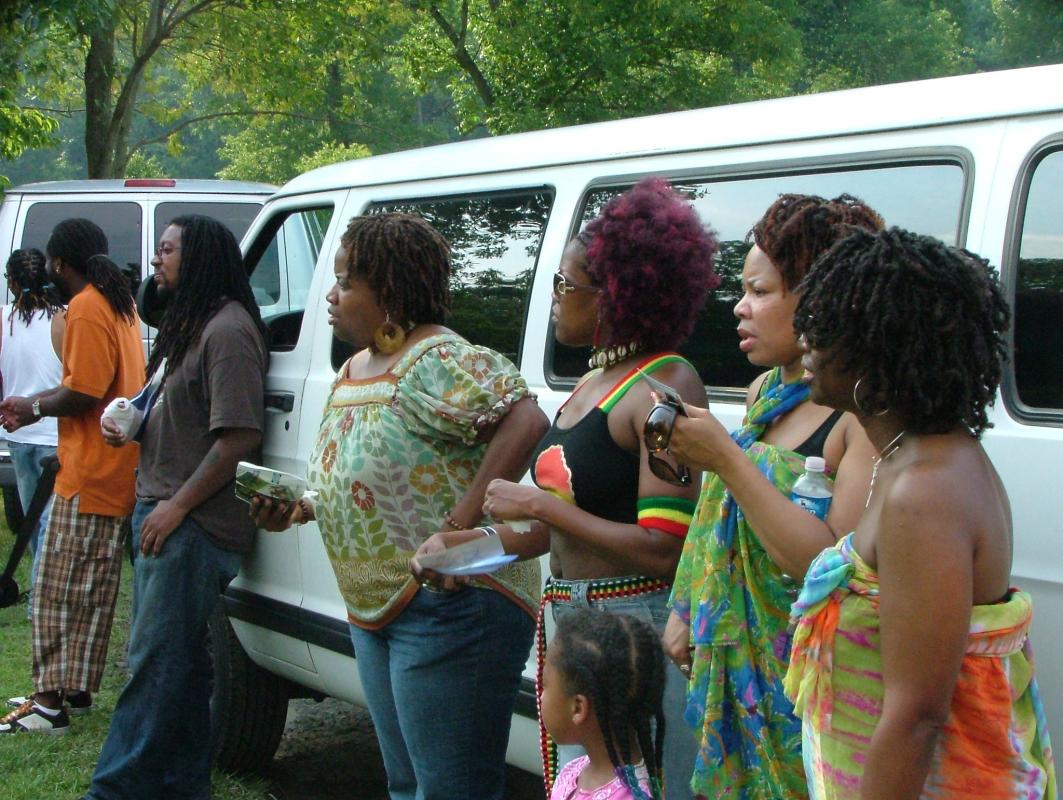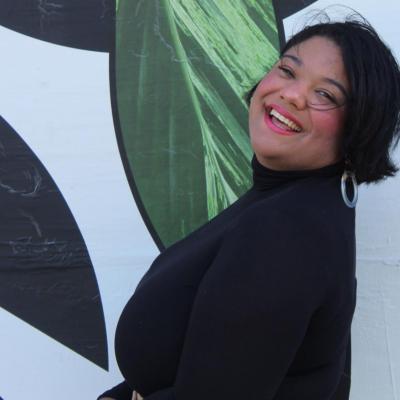
Years ago, Malaika Cooper helped her younger cousin, who was recovering from cancer at the time, get ready for a high school dance. Her hair was growing back in, and she asked Cooper if they could go purchase extensions to accentuate her final look.
“I was like, ‘Why do you need to buy more hair? Your natural hair is beautiful the way it is,’” recalls Cooper, the owner of salon and natural hair care center Dreadz N Headz in Gwynn Oak and the founder of the Baltimore Natural Hair Care Expo—an annual showcase of the area’s natural hair care manufacturers, educators, and professionals. “We walked into a beauty outlet and I saw a whole wall full of weaves—pink hair, green hair, purple hair—that were all telling my baby cousin not to wear her hair in its natural state, and that she needed to assimilate. It burned me up. That’s one of the reasons why I do what I do.”
Twenty years ago, Cooper founded Happy Nappy Day—a free festival featuring expert haircare purveyors, live music, and food trucks—in hopes of helping Black Baltimoreans embrace their natural hair patterns. The event returns in its big anniversary year this Sunday, July 9, from 1-8 p.m. on the Walbrook High School football field in Northwest Baltimore, with vendors including Ms. Jessie’s Natural Hair Products (selling styling creams and custards), Loc Soc (specializing in dreadlock accessories), and, of course, Cooper’s own Dreads N Headz.
Attendees can also take in live poetry readings (since 2015, the event has been coupled with Cooper’s Poets in the Park festival), fill up on fare from food trucks like Jamerican Eats Caribbean Soul Fusion, and partake in African dance lessons for kids. Another integral component of the Happy Nappy experience is the annual outdoor concert—the late, great poet and musician Gil Scott-Heron’s last U.S. performance was at the event in 2010—and this year’s headliner is New Jersey’s pro-Black hip-hop group Poor Righteous Teachers.
“Hip-hop has always been a disruptive genre that has pushed back against societal norms,” explains the group’s lead MC Timothy Grimes, who performs as Wise Intelligent. “It was one of the first platforms for urban youth to embrace themselves, so it’s fitting that hip-hop’s 50th anniversary [coincides with] Happy Nappy Day.”
The festival’s name is an intentional attempt to reclaim a term with racist implications. Believed to be derived from the word “nap” and used to describe a piece of fabric with loose or frazzled fibers, “nappy” serves as a comparison of cotton’s texture to the hair of slaves who picked it. Taking after her late mother, Shindana Cooper—an original Baltimore Black Panther and the founder of Shindana Toys, a Black-centric toy company that produced the Malaika Afro fashion doll in 1969—Cooper aims to shelter future generations from this rhetoric.
“When we were in the motherland, we had so many different textures and hairstyles that we used to identify ourselves with,” she explains. “The braids that we used to wear could tell people what village we were from, what family or tribe we belonged to—everything. When we were brought here, somewhere along the line, we lost our culture. So many people are controlling how we see ourselves. We need to control the narrative.”
Grimes agrees, adding that he wants people to remember that, “the idea of celebrating our natural hair is a response to systemic oppression.”
“There wouldn’t be a need to celebrate it if our natural hair and features weren’t demonized and criminalized,” he says. “[Our hair] is a cause for celebration because it’s a symbol of freedom. It defies gravity. It grows towards the sun. It’s a scientific anomaly. It’s part of the magic of who we are. For many years, we were taught that it wasn’t beautiful—that it was inferior—when in fact, it was the direct opposite.”
